Musings
The Eternal City and Eternity
When Shelley was in Byron’s company, he seemed to stop writing. Why? We can only speculate, but I think it’s partly because Byron’s larger-than-life persona and success as a published poet made Shelley feel small. That collapse into one’s self is not conducive to imaginative flights of fancy and surrendering to the creative spirit.
I’m using that as an analogy for what Rome has done to me and to explain my lack of productivity while here in the Eternal City.
For those of you who are friends on Facebook or follow me on Twitter (@rmfaris), you’ll know that I’ve been in Italy since late May. The first four weeks of my time here was as a registered student in LS 819 – “Landscape, Politics, and Poetry: English Romantics in Italy”, a travel study course offered by Simon Fraser University’s (SFU) Graduate Liberal Studies (GLS) Department. Our reading list included Rousseau, Goethe, and biographies of the poets, but the main focus was the work of Byron and Shelley.
We followed in the footsteps of these two poets, who spent their last years in Italy, by visiting cities they had lived in and enjoyed such as Venice, Florence, Pisa, Bagni de Lucca, Ravenna, and — of course — Rome where our course ended. We also veered off the path to visit cities such as Orvieto, Arezzo, and Assisi as well as many other wonderful Tuscan and Umbrian destinations.
While my colleagues in this adventure have returned home, I lingered in Rome and have now transitioned into summer holidays. I’ll be joined by family members tomorrow and we’ll be spending more time exploring this part of the world.
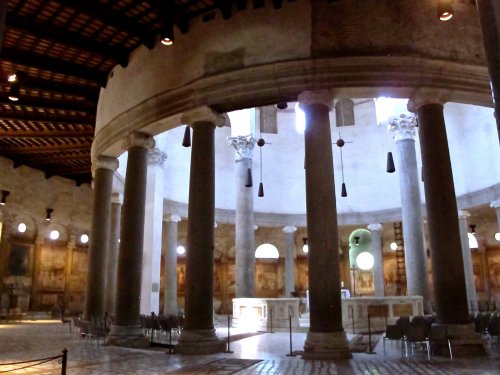
Rome is brash, bold, loud, chaotic, teeming with tourists, densely populated, hotter than Hades, ancient, new, crumbling, emergent, fascinating, intimidating, layered, in your face, colourful, irreverent, faith-based, and intriguing.
Being here brings you face-to-face, more so than in Vancouver, with issues of faith and belief. This connects to one of the themes which has occupied my interest since becoming a GLS student in 2010. Because the GLS program is largely focused on Western Civilization, you cannot avoid dealing with faith, religion, and particularly the Roman Catholic church because of the dominant position the Church has held in the evolution of the West – culturally, artistically, politically, and socially.
My studies, interestingly enough, have led me towards a greater tolerance and emerging personal understanding of religion and the positive aspects it may offer to believers. I still feel conflicted though because I cannot accept the point at which religion devolves into an exclusionary ideology of “I have the answer, I am right, you don’t believe as I do, therefore you are wrong and evil” which I believe underlies the negative consequences of the implementation and practice of religion through the ages.
In Rome, religion is everywhere you look, it is embedded – I believe – in the very DNA of the city and its citizens. And while I may feel awed stepping into the hushed cavern of yet another spectacular building dedicated to celebrating this faith, I feel bewildered at policies which in this modern age demand celibacy of its “managers”, sanction against contraceptives, and demonize homosexuality.
And while I embrace complexity in life, I wish the path to understanding eternity in the Eternal City was not so convoluted and confusing.
Music Down Memory Lane
The current climate in BC’s public education sector is fraught with emotion, tension, and conflict. As I look around for some words of comfort, here’s what comes to mind:
“Don’t worry about a thing,
‘Cause every little thing gonna be all right.
Singin’: “Don’t worry about a thing,
‘Cause every little thing gonna be all right!”
Bob Marley, Three Little Birds
A song by Bob Marley who, in addition to sharing his music with the world, played an integral role in resolving the crisis in Jamaican politics many years ago. By thinking of song and music, I’m not trivializing the contentious issues we face. I’m recognizing the way in which music helps us.
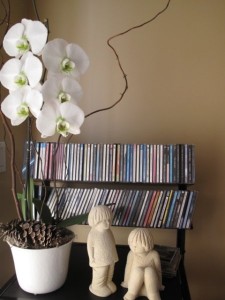
Music is central to our lived experience, individually and collectively. It may have even been a precursor to spoken language. Our cave ancestors likely communicated with rhythm and percussion long before they could yell out, “Run for your lives! Saber-tooth on the loose!”
Like smell or taste, sound can carry us down memory lane. It’s as if we each have a soundtrack to our lives.
As a pre-teen living in Beirut, I idolized Fairuz. There are many songs I associate with her, but one that has lasted with me, even as I’ve lost my fluency in Arabic, is a childhood chant from a decades-old movie which I’ve never seen. Did my grandmother teach me the words to the chorus? I don’t remember, but listening to it now, https://www.youtube.com/watch?v=gLb-n6OUfyk takes me back to a time — which may sound cliché — of innocence. It was before the Lebanese civil war which started in 1974. It was also the year we moved to Vancouver and I had to leave my family, my friends, all I’d known for the past five years, behind.
Thinking back to my high school years in West Vancouver is … well, let’s just say I prefer not to. Although a fluent English speaker and a capable student, I struggled to establish friendships in a new and different cultural environment. While Grade 8 went smoothly enough, Grade 9 was one of social isolation and misery. I think of it as my year of tears. From then through to graduation I continued in my role as a nerdy misfit, but I did find a circle of friends in Grade 10 which helped me tremendously. I recall many songs from this era, but Meatloaf’s album Bat Out of Hell stands out. My friend, my guardian angel at the time and with whom I regret losing touch, had bought the record (yes, it was the days of vinyl!). We’d sit in her room listening to the songs and it likely won’t surprise you that Paradise by the Dashboard Light occasioned much giggling — we were teenage girls! — and was played over and over and over again.
I’ve been thinking about music a lot lately as I watch my son discover the soundtrack to his life. I hadn’t expected his vibe to be so alternative and I believe that may be more a reflection of the paternal influence in his life! I may have introduced him to pop, musical theatre, and classical, but he’s introduced me to the charms of Laurie Anderson (which I have to admit elude me somewhat), Moby, Brian Eno, David Byrne, and Janelle Monaé amongst others. For our visit to Tofino during spring break, he was in charge of the playlists for our drive over and our evenings in.
And because I can’t stay away from education for too long, let me just say I don’t think there’s enough music in our schools although where there is music, fantastic work is being done by educators. I believe this is true of the arts in general: they are in danger of being underrepresented, on a general basis, in our curricula and the practice of day-to-day teaching and learning.
Why do I think this is an issue?
Because the arts, music and others, transport us beyond the limits of our humanity. They are universal, they are boundless, and they are the greatest expression of our potential to be creative, to create.
Music and art help us to defy gravity. https://www.youtube.com/watch?v=3g4ekwTd6Ig
It’s Alive!
“It’s alive: my iPhone has consciousness.”
This assertion cracked up the other participants in my Masters seminar and I’m pretty sure they’re never going to let me forget what I said.
Once you’ve finished laughing, let’s take the time to examine that statement more closely.
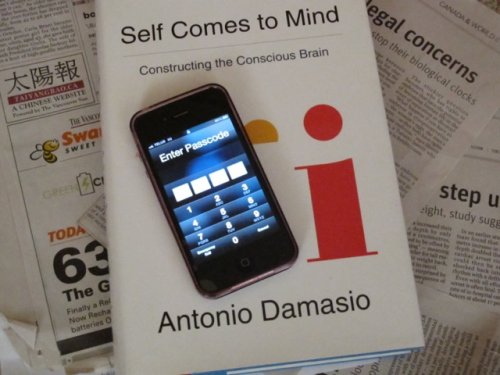
My Graduate Liberal Studies (GLS) course this term was Technologies of the Self with Professor Michael Kenny. The course title comes from Michel Foucault’s work in which he discusses four major technologies, techniques we use to understand ourselves, one of which is technologies of the self. Quoting Foucault, these are the techniques “which permit individuals to effect by their own means or with the help of others a certain number of operations on their own bodies and souls, thoughts, conduct, and way of being, so as to transform themselves in order to attain a certain state of happiness, purity, wisdom, perfection, or immortality.”
This was the guiding theme of the course in which we explored a wide range of ideas such as what does it mean to be human, what dictates human behaviour, is there such a thing as free will, and so on.
We also delved into Antonio Damasio’s book Self Comes to Mind in which the acclaimed neuroscientist and author looks at the question of consciousness. He identifies three criteria for consciousness: wakefulness, mind, and self.
Looking at these, and looking at my iPhone (nicknamed Chummy in our household and whom I often introduce as my son’s younger brother), it seems to me Chummy meets the criteria. He has wakefulness which I can tell because when he’s on, I just have to touch the screen to initiate a series of actions. There’s no question he has mind. I asked him to Google the word “consciousness” and he came back with more reading than I could probably manage in a lifetime. He’s so smart! As to self, well, this gets a bit trickier although I’m pretty sure he would self-identify as an Apple with his snazzy logo wear and engaging social personality.
So why am I considered human and Chummy is not?
That brings me back to wakefulness. Chummy can only come to consciousness if I, or another humanoid, presses a button with sufficient pressure to tell him to wake up. If I’m asleep, my equivalent to “off”, I wake up (barring that last great sleep from which none of us emerges) by some mysterious process that is self-initiated — most likely as a result of a complicated and coordinated process which involves my brain, my vital organs, and my body.
That on/off switch is what I think we’re looking for when we talk about what it means to be human. What is it exactly, who put it there, and how does it work?
And despite the centuries that have been devoted to the topic, despite the advances of science and technology, despite the depths of neuroscience, we still don’t know. And I sometimes wonder whether we should call off the search because history has not been kind to the species when it comes to humans exerting power and control over nature and natural processes.
There’s also my worry that if we do find that on-off switch, will we start treating human beings more like machines since we’re already living in an age where we’re tempted to treat machines more like humans?
Expectations
There are essays to mark yet and a final exam to invigilate, but as of today I’ve wrapped up my second term as a Teaching Assistant (TA) in the Department of Humanities at Simon Fraser University (SFU).
Here are some key insights I’ve gained through this experience:
- I enjoy teaching at the post-secondary undergraduate level.
- I love the Humanities.
- I feel a special affinity to SFU and particularly the Burnaby campus.
My enjoyment has come from the interaction with students in an environment which encourages discussion. And there have been many ideas to discuss! Our texts this term ranged from the Greek tragedy Antigone by Sophocles to Plato’s Apology to the medieval French chanson de geste, The Song of Roland, to The Prince by Machiavelli, to the slave narratives by Frederick Douglass and Harriet Jacobs and the contemporary play Copenhagen by Michael Frayn.
This literary selection speaks to me of the breadth of the human experience, the vast scope of history, and the value of the big picture. It’s also about connection from one era to the next, from the people of yesterday to those we share the world with today. Machiavelli, for example, talks about political power and while our context is radically different from 16th century Italy, when we try to understand recent Canadian political scandals such as the Robocall affair or the F-35 fiasco, are we not considering some of the very same principles he explored in his writing?
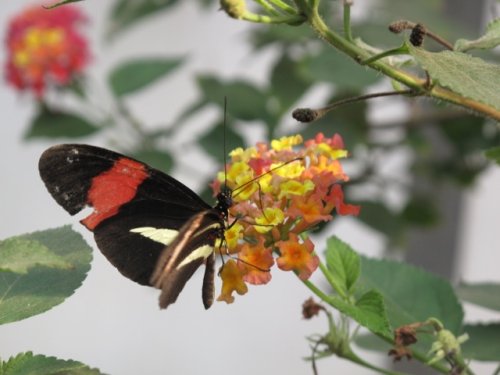
It may be depressing to think that with all of humanity’s progress, human beings and human nature seem to remain stubbornly the same. Perhaps, on the other hand, there is reason to be optimistic since the study of texts such as these validate and reaffirm our human existence. We have a place in this world and we have the ability to expand and enhance our understanding of who we are. Study in this area helps us see the connection to where we’ve come from and perhaps will help us carve out a better path to where we hope to be.
Here’s something else I’ve decided based on my experience at the university. Education in K to 12 is due for an overhaul. We see this “renaissance” starting in the inquiry-based pedagogical approach that is taking hold and in the support initiatives which recognize the needs of the whole child such as self-regulation. But systematic change is needed.
And we need to make sure that students know how to ask questions and establish their own expectations around their learning experiences.
Why?
Each term, I’ve started off my tutorials asking students to identify the expectations and the concerns they have regarding the course. While they seem to have no difficulty in listing their concerns — the amount of reading, the writing load, marks, and so forth — they seem unable to verbalize their expectations.
Is this perhaps because the system has always told them what to expect and what their learning outcomes ought to be? Have we failed to inculcate our students with the ability to independently identify what the purpose of learning is or what their optimal learning experience may look like?
It seems to me that at the very least an undergraduate should be able to say, “I expect to learn.”
And if I can play a part in that learning, then I think, after years of searching, I may just have found my life’s passion.
The Arts In Education – For A Better World
What a relief! Mark Mercer’s article in this morning’s newspaper reiterated that “universities are about education, about learning for the sake of learning” and that “university done rightly is great preparation for life”.
This was a welcome contrast to Margaret Wente’s recent diatribe against the Occupy protesters. With a swipe of her pen, she denigrates the value of the humanities. She seemingly fails to recognize that there are likely as many mechanical engineers out of work today as there are sociology students trying to find their way in life.
The business challenges we face and the deficiency in employment opportunities for young adults is not due to the educations they pursue; rather it reflects the reality of the structural weaknesses and flaws in our economies and societies.
And while we struggle to address these serious questions, as educators we need to ensure that we don’t lose sight of the value of the humanities in education and the value of the arts in our students lives.
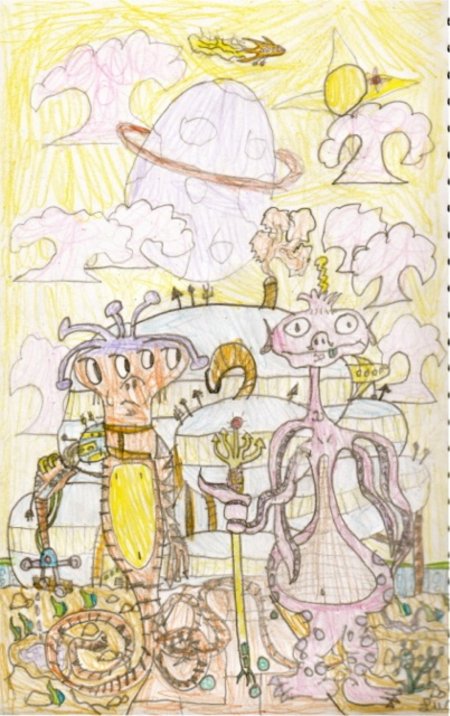 When I walk down the hallways at my son’s school, I’m always struck by the amazing artwork the students produce: artwork directly related to the curriculum, the topics they are studying, and their learning. A lot does get done and I think that a lot more needs to be done to without imposing a further burden of delivery on teachers.
When I walk down the hallways at my son’s school, I’m always struck by the amazing artwork the students produce: artwork directly related to the curriculum, the topics they are studying, and their learning. A lot does get done and I think that a lot more needs to be done to without imposing a further burden of delivery on teachers.
What if in-residence programs were implemented? For example, what if a published author served as writer-in-residence for the district? We have great visual artists on the North Shore — why can’t we look at having them conduct classes or organize field trips to their home studios throughout the year? Why can’t a professional dancer come in on an extended basis, once a week, to help choreograph a holiday show? Could we organize visits to Sinfonia’s (the North Shore’s professional orchestra) rehearsals? Why isn’t it automatically on the calendar every September and October for classes to take in sessions offered during the Vancouver International Writers Festival or Vancouver International Film Festival?
Some schools may be pursuing these sorts of projects and some schools aren’t. These type of initiatives, in my mind, would compliment teachers’ efforts and would be most viable in conjunction with greater support for specialist teachers (music, art, drama, dance, etc.) already hard at work. I also see that such programs would be most economically effective if delivered on a resource-sharing model between the district, the schools, and the Parent Advisory Councils (PACs).
I’m not advocating a specific approach or model because I don’t have all the information necessary to say which one will work the best. What I do know is that there is room to do more, much more. And we must do more because the arts, to me, are integral to the human experience and our children’s learning will be enhanced if art is more fully-integrated in their daily routines as a central component rather than as simply an adjunct.
I agree with Martha C. Nussbaum who writes in her 2010 book Not For Profit – Why Democracy Needs the Humanities:
“If we do not insist on the crucial importance of the humanities and the arts, they will drop away, because they do not make money. They only do what is much more precious than that, make a world that is worth living in, people who are able to see other human beings as full people, with thoughts and feelings of their own that deserve respect and empathy, and nations that are able to overcome fear and suspicion in favor of sympathetic and reasoned debate.”
I think there’s room to dispute her contention that the arts do not make money (look at this recent article by John Doyle on the profits made by private television broadcasters), but the point is that there is inherent value in the arts and humanities which we risk losing in a world solely focused on measurable utility and on money.
And isn’t that the ultimate purpose of education, as Nussbaum says, to “make a world that is worth living in, people who are able to see other human beings as full people”?
So let’s do that. Let’s make sure that our curricula do not sacrifice the arts. Let’s not make this a lesser world, but a better one.